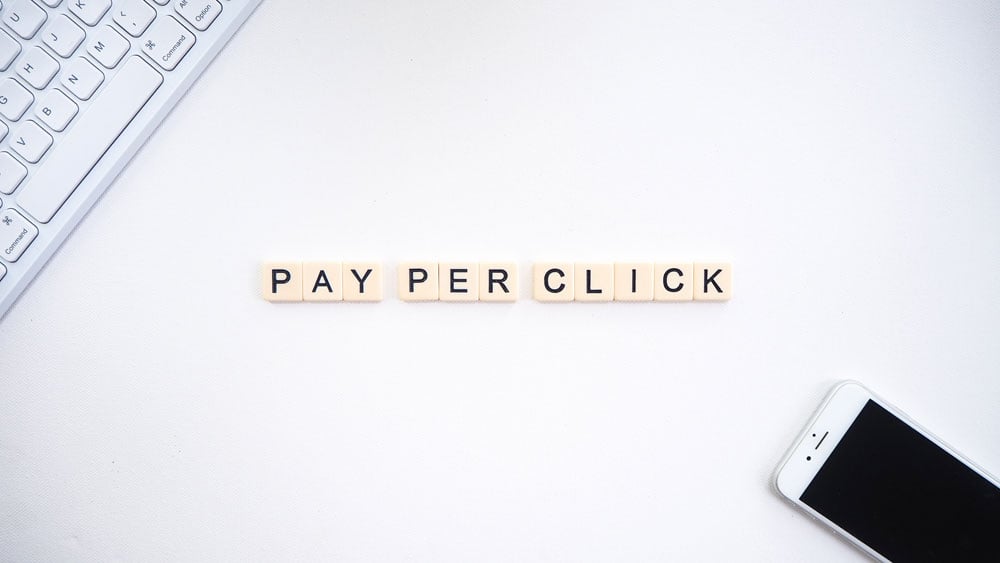Seeing your business listed high on the first page of search engine results for your chosen keywords remains an online marketing holy grail. You may even be targeting the coveted "position zero"; the information Google highlights in a box at the very tippy-top of the page – above the ads and organic search results. These are worthwhile goals.
But these are long-game search engine optimization (SEO) goals, especially for small businesses.
As you work towards achieving these SEO objectives, you've probably been thinking about strategies that can yield bottom-line marketing results in the short term. You've been thinking about running a PPC campaign.
Smart. A well-run PPC campaign can deliver your business a significant boost.
But the big questions holding you back: Can you afford PPC advertising? How much will you have to spend? Will it be worth it?
These are the questions I'm going to help you answer in this post. If you're entirely new to PPC advertising, you may want to read my Crash Course on PPC Advertising Made Simple first and then return here. If you just need a super quick refresh on some key concepts, read on here, and then I'll dig into the cost and budgeting details.
Basic Building Blocks of a PPC Campaign

Every marketing campaign starts with a goal. A PPC campaign is no different. Before you even start thinking about what a PPC campaign will look like or cost, figure out what you want it to achieve. That means specifying the audience you want to reach and what you want from them.
Are you looking to make an immediate online sale? Do you want to generate qualified leads? Maybe you just want more visitors to your website or Facebook page. Since the point of a PPC campaign is to yield immediate results, your goal should align with a pressing business goal. To help you think about it, here are the six different types of ad campaigns, as defined by Google Ads (since it's the most significant ad platform):
- Sales
- Leads
- Website traffic
- Product and brand consideration
- Brand awareness and reach
- App promotion
Based on the campaign type you set up, you'll have a different "conversion" goal. For purposes of your PPC campaign, a "conversion" is how you define success. If the intention of your ad was to make an immediate online sale, getting someone to click on your ad isn't enough. You want the sale. In this case, the sale is the conversion.
To give another example, let's say your goal is to generate a qualified lead. You provide a product or service that has a longer sales process and has a higher sales value. When someone clicks on your PPC ad, they'll go to a landing page. Your goal is to get people who meet your qualifying criteria to fill out that landing page form. That's a conversion for you.
The critical point here isn't just that "conversion" (i.e., success) means different things in different campaigns. It's also crucial to understand that clicking on the ad isn't necessarily a conversion. You pay for the click, but you may need to quantify success a bit further downstream. Remember this distinction when determining what you're willing to pay per click and assessing whether you're getting an ROI on your PPC campaign.
Keep in mind that your PPC campaign success depends on selecting the right keywords. If your ads aren't displaying in response to the right searches or you're targeting keywords too general to gain traction, the budget isn't the issue.
The last refresher point I'll mention before getting to costs and budgets is that the quality and relevance of your marketing collateral, the ad and destination content, must be spot-on. A confusing or off-putting ad, even if it shows up at the right time in front of the right people, won't lead to clicks. Your ad may attract the right kind of attention. Yet if your website or landing page is low quality or not relevant (based on what the ad promised), you won't get the conversions you need. As an aside, Google and other ad platforms assign content quality scores to the collateral used in your campaign, which will impact how often your ad appears and how much you'll pay.
All right, refresher over. On to the numbers.
Basic Budgeting for a Test Campaign

You need to set amounts for an overall budget and cost-per-click (CPC) for your test campaign. The third number you need to calculate is your cost per conversion.
The ad platforms let you set a maximum budget, so you don't need to worry about going over budget. A useful rule of thumb for setting a test budget is to multiply the number of keywords by the CPC by 100 clicks. If you run a test campaign with five keywords and a maximum CPC of $1.50, your maximum budget would be $750 (5 x $1.50 x 100 = $750).
This formula begs the question: What should you expect to pay per click?
You set a maximum CPC bid when you create your campaign on the platform. Your maximum CPC bid doesn't mean that's what you'll pay per click. It just means that the most you're willing to pay for a single click. Setting your maximum budget limits your overall spend. You can set a budget by the day, the week, or for the campaign.
When you have no PPC history of your own to analyze, you can look to industry PPC benchmarks to get an idea of what to bid. Google's PPC data can be instructive. Looking at just two industries: The average CPC for home goods is 60 cents on Google's Display Network (the ads you see on websites) and $2.94 for an ad on a search results page. In contrast, a B2B company pays, on average, 79 cents for a display ad and $3.33 for a search results page ad.
Every ad platform, whether Google, Facebook, Instagram, or otherwise, will have data on CPC broken down by industry. As you build the campaign on the platform (e.g., specify a keyword and other campaign parameters), the platform may provide more targeted information on what a CPC may be. Google has tools that let you automate your bidding strategy. That is, it allows Google to set bids for you within your specified budget.
Let's say you sell home goods, and you want to get on a search results page for three keywords. Using the Google CPC research, you can earmark a budget of around $900 for 100 clicks (3 x $2.94 x 100 = $882). If you have $1000 in your marketing budget to spend on the test campaign – great. Test it out.
Yet there's still one critical number to crunch: your cost per conversion.
You've defined what a conversion is for your campaign and specified a goal. You can assign each conversion a dollar value. Some conversion values are more straightforward to calculate than others. An immediate online sale is the easiest conversion value to figure out.
Say your average online sale amount for a new customer is $50. According to Smart Insights e-commerce research, the average conversion rate for turning U.S.-based desktop visitors into customers is 4.14%. Using some rough math, that means that for those 100 new visitors who click through your ad to your site, you'll earn $200 in sales (4 sales x $50 average sale value). However, you spent around $900 to get those four sales, for a rough average cost per conversion of $225 ($900 / 4 = $225).
That doesn't look so good, spending $225 for a $50 sale.
However, you may look beyond that one sale. If you track lifetime customer value (and you should), you may know that your average new customer spends $800 over their first year. In that case, your average cost per conversion is still $225, but now you can compare that to $800 in revenue in the first year.
As you can see, figuring out your cost per conversion can get tricky. How do you quantify the conversion of someone who clicked through to your website but didn't make a purchase until their third visit? How about if your conversion is getting a lead? The farther away your PPC campaign conversion action is from an actual sale, the trickier it can get.
When you're just starting out with your test campaign, figure out a cost per conversion based on the best information you have considering what marketing and sales data you already track. You have to start somewhere.
Use PPC Campaign Data to Set New Goals
As you run your test campaign, you'll start learning right away. Were you getting clicks but no conversions? There may be a disconnect between what your ad promises and where it takes them. Make sure your message and design between the ad and underlying marketing content are consistent. If you are getting some clicks, you'll start generating data on how many clicks it takes to reach a conversion and how many more to get a sale (if a sale isn't your conversion).
You also want to look at how different keywords are performing and that the search terms that are pulling up your ads are relevant. A keyword may be low performing because it’s too specific or because your marketing collateral isn't grabbing the attention it should. You can test out different marketing collateral for the same keywords and audience parameters. Play around with variations of a high performing keyword to see if it will generate similar success. (Don’t forget to play around with keyword modifiers to make sure you’re reaching the right audience!)
Each PPC campaign has numerous variables and generates a high volume of data. Learning how to analyze that data is key to improving the ROI on your PPC budget. Fortunately, this learning process doesn't require a long-term perspective to start seeing results. Remember – the original point of the PPC campaign is to meet specific marketing and sales goal in the near term as your long-term SEO strategy builds in the background.
If you want to jumpstart the near-term results, a well-oiled PPC campaign can deliver, consider working a team of PPC experts – like us! If you have excess time and budget to go through a lot of trial and error as you learn to run a successful PPC campaign, go to it. You or your team member will gain highly valuable experience and information that you can draw on for future campaigns. However, if you want to juice your first few campaigns with some expertise, give us a call to connect with our Google-certified advertising team.
Photos courtesy of Unsplash.


Submit a Comment
Your email address will not be published. Required fields are marked *